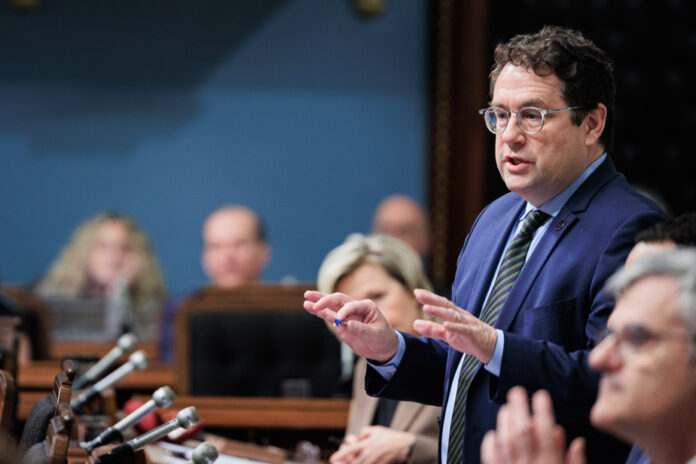Bernard Drainville gives himself the power to cancel decisions made by school service centers, but the Minister of Education will have to “avoid piecemeal management,” says the federation that represents them.
Under his education reform tabled Thursday morning, the Minister of Education will be able to reverse decisions made by school service centers if they “break away” from the government’s vision.
This is an “exceptional power”, said Minister Drainville.
If such a case arises, the president of the Federation of School Service Centers says she wants the minister to “try to understand the situation before,” says Caroline Dupré.
“It will be necessary to avoid doing piecemeal management. Sometimes the situation that is reported seems completely disproportionate to us, but when we understand what is behind it, we find that it is a good decision, ”continues Ms. Dupré.
Last January, Bernard Drainville publicly rebuffed the general manager of the Bleuets service center in Lac-Saint-Jean, who had announced the closure of 4-year-old kindergarten classes due to the shortage of teachers. The minister later apologized.
The unions believe that this new reform is only a new “structural shuffling” and that in fact the students will not see the difference.
“Will this umpteenth reform solve the significant problems experienced by students and staff in the education network? The answer is no,” said Caroline Senneville, president of the CSN.
The creation of the National Institute of Excellence in Education announced Thursday does not arouse enthusiasm among the unions.
“We bring back ideas that we had packed away,” says Éric Gingras, president of the Centrale des unions du Québec (CSQ). This new Institute “will have to go in the direction of the Ministry”, he apprehends.
The Autonomous Federation of Education believes for its part that this project could “aggravate this marked tendency to apply “wall to wall” solutions, without taking into account the context of each establishment, and even of the classes “.
The president of the Federation of School Service Centers, however, believes that it is a “very interesting” idea, as long as decisions are made based on educational research, not politics.


















